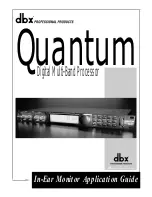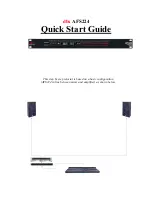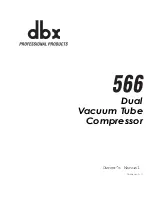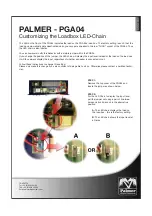
66
•
When used daily, the complete charging unit (power supply – battery charger) may remain
plugged into the wall socket.
•
The battery should be charged for at least 3 hours prior to initial use.
•
Note the permissible temperature range for charging the battery (see Page 89).
•
Use the 757L16* power supply and 4E60* battery charger to charge the battery.
•
The distance between the battery charger and the receiver on the product must not exceed
2 mm.
7.1 Connecting the power supply and battery charger
1
2
3
1) Slide the country-specific plug adapter onto the power supply until it locks into place (see
fig. 1).
2) Connect the round,
three-pin
plug of the power supply to the receptacle on the battery char
ger (see fig. 2) so that the plug locks into place.
INFORMATION: Ensure correct polarity (guide lug). Do not use force when connecting
the cable plug to the battery charger.
3) Plug the power supply unit into the outlet (see fig. 3).
→
The green LED on the back of the power supply lights up.
→
The LED ring (status indicator) on the rear of the charger lights up green to indicate the
correct connection to the power supply.
→
If the green LED on the power supply and the LED ring on the battery charger do not light up,
there is an error (see Page 93).
7.2 Charging the prosthesis battery
1) Connect the inductive charger to the receiver of the charging unit
on the rear of the product. The charger is held in place by a mag
net.
→
The LED ring on the rear of the charger pulsates purple
(4-second cycle).
→
If the LED ring lights up in a different colour, this indicates an
error (see Page 93).
2) The charging process starts.
→
Once the product battery is fully charged, all LEDs on the side
of the battery charger light up.
3) After the charging process is complete, hold the prosthesis still and
remove the inductive charger from the receiver.
→
A self-test is performed. The joint is operational only after cor
responding feedback (see Page 96).
Summary of Contents for Genium 3B1-2
Page 2: ...2...
Page 50: ...50 LEDs 0 1 2 3 4 5 Ladezu stand 0 10 11 30 31 50 51 70 71 90 90...
Page 98: ...98...
Page 341: ...341 Leds 0 1 2 3 4 5 Laadtoe stand 0 10 11 30 31 50 51 70 71 90 90...
Page 342: ...342...
Page 434: ...434...
Page 438: ...1 1 0 0 6 1 0 0 6 4X350 RC settings Info RC version 1 0 0 4 1 0 0 6 1 0 0 6 438...
Page 439: ...439 2 2017 02 06 3 3 1 8 7 6 5 4 3 2 1 1 2 3 4 5 LED 6 7 8 3 2 100...
Page 440: ...440 466 469 469 4 4 1 4 2 MOBIS 2R20 m kg 2 3 4 150 kg 2R21 m kg 2 3 4 150 kg 4 3 471 1 4 4...
Page 441: ...441 4 5 5 5 1 5 2 1 1 2 5 3 AC AC...
Page 442: ...442 474 464...
Page 443: ...443...
Page 444: ...444 5 4 5 5 AC 471...
Page 446: ...446 5 7 474...
Page 447: ...447 456 466 5 8 474...
Page 448: ...448 474 5 9 5 10...
Page 456: ...456 9 1 1 1 460 1 1 2 3 1 8 9 1 2 9 1 3 alk to run 4 0...
Page 457: ...457 9 1 4 1 2 3 Resistance 460 9 1 5 2 9 1 5 1 460 9 1 6 1 2 3 4 9 1 7 460...
Page 458: ...458 1 2 3 4 5 6 7 9 1 8 460 1 2 3 4...
Page 459: ...459 9 1 9 1 2 3 4 5 Resistance 460 9 1 10 Resistance 460 9 2 2 Standard...
Page 466: ...466 10 5 3 461 10 1 2 462 459 Volume 0...
Page 468: ...468 464 4 1 2 1 3 2 464 10 3 1 1 3x 1s 1x 1x 1x 1x Basic mode 1 2 3 3 464 4 1 464...
Page 469: ...469 11 11 1 5 474 1 11 2 11 3 474 OPG 11 4 5 OPG...
Page 470: ...470 12 10 20 13 1 2 14 ISO 10328 300 3 5 AC 15 15 1 15 2 15 3 93 42 EEC VII CE...
Page 473: ...473 17 17 1 Type BF applied part FCC 15 1 mm...
Page 474: ...474 17 2 17 2 1 3 3 1 1 Volume 0 459 1 1 1 1 1 1 1 1 2 2 1 1 2 3 3 1 2 3 17 2 2 5 1 3 25 24...
Page 475: ...475 5 10 6 5 60 5 469 10 10 5 30 3 1 1 469 AC LED LED AC AC AC AC...
Page 476: ...476 AC LED LED AC AC AC LED 5 LED LED LED 2 mm LED2 4 LED1 3 5 471 LED LED 3 LED LED AC AC...
Page 478: ...478 3 3 463 1 AC 5 1 5 LED LED 0 1 2 3 4 5 0 10 11 30 31 50 51 70 71 90 90...
Page 479: ...479...
















































